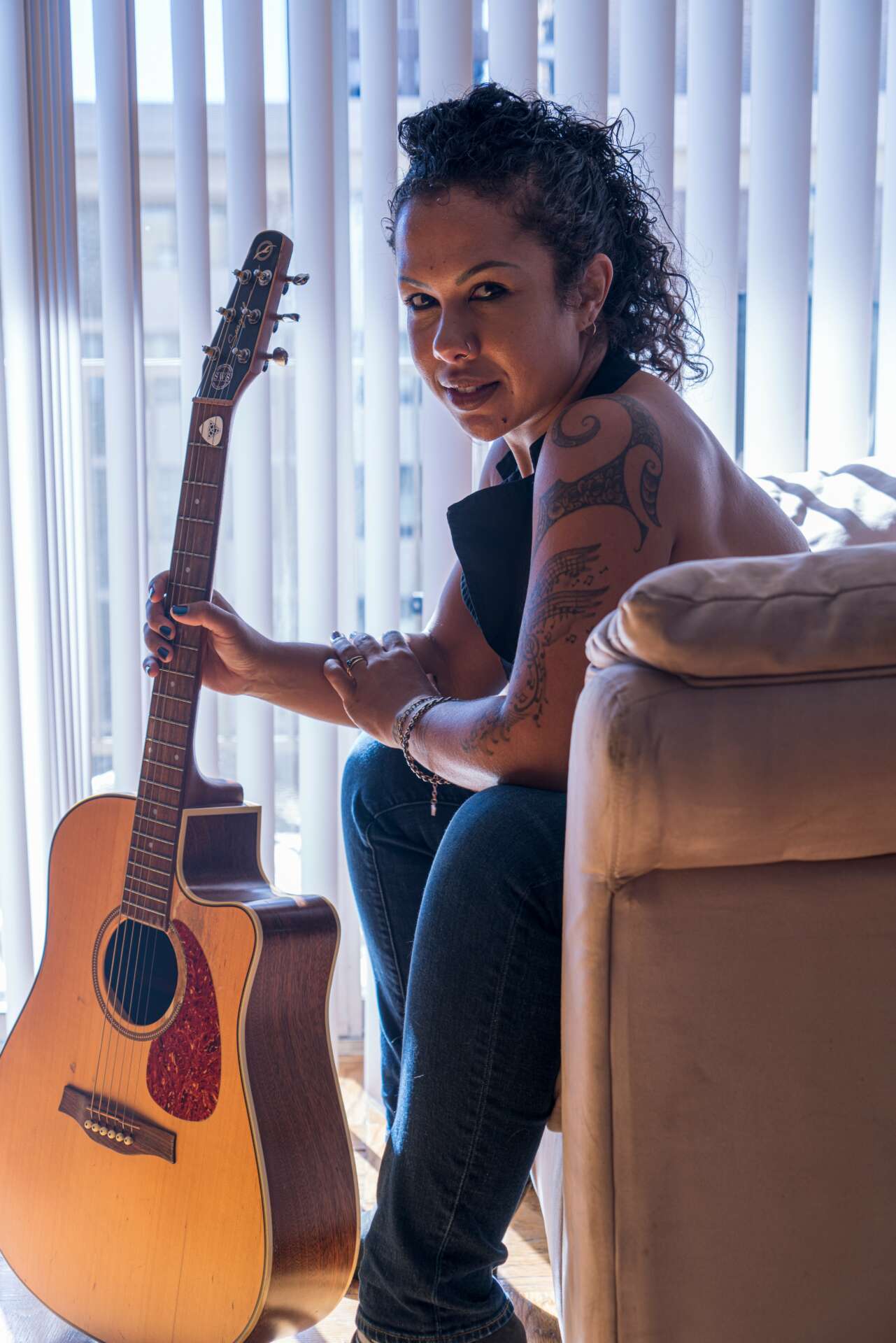We recently connected with Emma G and have shared our conversation below.
Emma, appreciate you joining us today. We’d love to hear about a project that you’ve worked on that’s meant a lot to you.
I’ve always turned to music and songwriting as a way for me to express my innermost thoughts, feelings, and ideas… but it wasn’t until I was an adult that I realized just how meaningful music is for me. Not only has music been my love language, and means of communication for as long as I can remember: but writing, performing and recording my own songs has also helped me:
– identify, simplify, and overcome traumas and struggles
– powerfully connect with my community
– heal from neurological damage from multiple brain surgeries [I have a condition called hydrocephalus, for which I’ve had ten brain surgeries]
– understand and work through depression and loss
– connect with my community in ways that help me feel a stronger sense of belonging.
Now: I’m able to not only continue singing my truth, and turning my lessons in to blessings, but I also work with teenagers to do the same thing through turning their struggles into songs too.

Great, appreciate you sharing that with us. Before we ask you to share more of your insights, can you take a moment to introduce yourself and how you got to where you are today to our readers.
I’m a singer/songwriter – born singing and making up songs as a child as a way to – as I’ve come to realize – feel safe about expressing myself. I was born with a rare neurological condition called hydrocephalus, and had ten brain surgeries by the time I was 12… so I had a lot going on! As a teenager struggling with balancing brain trauma, growing up, being a person of color, and some of the negative impacts of my femininity: I turned to music more than ever – writing over 500 songs by the time I was 15. When my ex-boyfriend unalived himself at just 21 [I was 19], I vowed to do all I could with my music to help other young people…
Which led me to fronting a hard rock band, teaching music at a tertiary institute, and working as a youth empowerment worker at the YMCA – which led me to move to the United States in 2015 to “follow my dreams”, and – just before the pandemic hit – I realized my varied career history was setting me up for what I’m doing now: writing music with a message, and using it to empower people, but also running a podcast [now TV show] called the Reconnect with your Teenager podcast, keynote speaking, and coaching young people.
I also just delivered my second TEDx presentation about music and mental health called “From Pain to Playlist: Turning Struggles into Song”.
Are there any books, videos, essays or other resources that have significantly impacted your management and entrepreneurial thinking and philosophy?
I’m a huge fan of books – and have written two myself: “Reconnect with your Teenager – A Parent’s Guide to Helping Your Stressed or Anxious Kid using the Art of Songwriting” and “My Life, My Songs, My Healing : Turning Struggles into Song”… and I’m not going to lie: WRITING those books helped me. But when it comes to others books, the following would definitely be my top picks:
– The Art of Asking from Amanda Palmer
– The Greatest Salesman in the World by Og Mandino
– Hustle Harder, Hustle Smarter from Curtis Jackson
– The Alchemist by Paulo Coelho
– Get Different by Mike Michaelowicz
Do you think there is something that non-creatives might struggle to understand about your journey as a creative? Maybe you can shed some light?
So many people ask me how on earth I have written so many songs… and laugh when I tell them it’s possible for them too. But it’s MORE than possible for a non-vocalist, non-musician, and even a “non-creative” person to write a good song, as long as they have three tools:
– authenticity
– vulnerability
– courage to think outside the box.
For me, writing songs is all about giving yourself permission to follow a few guidelines, but other than that: break ALL of the rules of how we’re “supposed” to act, think and create. I break it down to 9 simple steps:
1. Turn on a piece of music – preferably instrumental
2. Spend 5-10 minutes brain-dumping [which I refer to as word vomiting]
3. Analyze your word vomit, and notice any key themes, concepts or ideas.
4. Choose ONE of those ideas that most resonates with you
5. Figure out who you’re talking to, and what exactly you want to say
6. Build out your theme into verses [which tell the story], choruses [gives you the moral of the story] and a bridge [repeats the moral more emphatically]
7. Remember: KISS: KEEP IT SIMPLE, SONGWRITER! Can you say what you’re trying to say even simpler?
8. Show me – Don’t Tell Me : paint me a picture with your words, melody and music
9. Finally: apply a rhyming and rhythmic pattern that flows.
I often work one on one with clients who are super skeptical that they can write a song… and we ALWAYS finish an entire song within an hour.
Contact Info:
- Website: https://emmagmusic.com
- Instagram: https://instagram.com/emmagmusic
- Facebook: https://www.facebook.com/YesYouthCoaching/
- Linkedin: https://www.linkedin.com/in/emmagmusic/
- Twitter: https://twitter.com/emmagmusic
- Youtube: https://youtube.com/emmagmusic
- Other: https://emmagmusic.bandcamp.com
Image Credits
Alexander Swain


